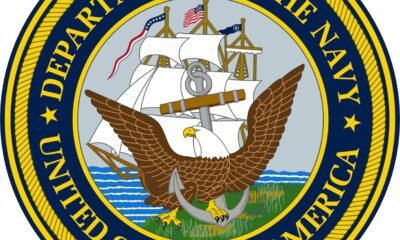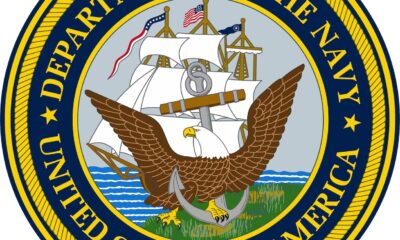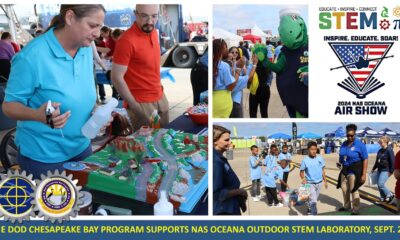Cruise Industry
Arctic Expedition Uncovers Valuable Data for NPS Researchers and Students
A team from the Naval Postgraduate School’s Meteorology and Oceanography (METOC) program has been conducting groundbreaking research in the Beaufort Sea, about 200 nautical miles from land. Positioned on 4 feet of ice above 12,000 feet of water, and enduring temperatures plummeting to 45 degrees below zero, the four-member team performed a range of experiments to understand long-range acoustic propagation in the Arctic. “On a scale of one to 10, I’d put it at an 11,” remarked retired Navy Cmdr. John Joseph, a leading faculty member in the NPS Department of Oceanography, who co-led the expedition with Dr. Ben Reeder. “We accomplished nearly all of our scientific objectives, which will significantly inform the Navy’s anti-submarine warfare (ASW) and intelligence, surveillance, and reconnaissance (ISR) missions in the Arctic.”
While on their transit through Prudhoe Bay, Alaska, the team also had the opportunity to meet with distinguished NPS alumni, including Secretary of the Navy Carlos Del Toro and Sen. Mark Kelly (D-Ariz.), as they prepared to observe operations at Ice Camp Whale.
The research aligns directly with the Department of Defense’s 2024 Arctic Strategy, emphasizing enhanced ISR capabilities and better predictive models for changing environmental conditions. Iris Ferguson, Deputy Assistant Secretary of Defense for Arctic and Global Resilience, underscored the importance of improved sensing architecture for domain awareness and threat detection, particularly in collaboration with Canadian allies.
Strategically, the Arctic holds approximately 30% of global undiscovered gas reserves, 13% of its conventional oil reserves, and $1 trillion worth of rare earth minerals. It is a region of both global importance and geopolitical tension. With melting sea ice creating more navigable waters, often called the “Blue Arctic,” challenges from increased maritime activity, particularly from Russia and China, are significant. As Del Toro noted, “Increased access to shipping lanes and undersea resources mandates that we ensure our operational resiliency and maneuverability in the region.”
Operation Ice Camp 2024 serves as America’s cornerstone for Arctic research and operational readiness. Previously known as Ice Exercise (ICEX), the event was renamed and elevated to reflect its growing importance. The operation included more than 200 participants from U.S. armed forces and partner military services, including Canada, France, the UK, and Australia. “Ice Camp Whale provides our teams the chance to conduct their research in one of the world’s harshest environments,” said ASL director Howard Reese. “The lessons learned here are directly applicable to real-world operations.”
This year, the research team was joined by Navy Lt. Cmdr. Colleen Wilmington and Lt. Cmdr. Taylor Hudson, whose graduate theses benefit from the data collected. Their focus was primarily on understanding how changing Arctic conditions affect underwater acoustics. A key innovation was the cryophone, a device capable of detecting acoustic waves across water, ice, and air. According to Joseph, “This has multiple advantages, including enhanced communication and data collection crucial to ASW and ISR missions.”
Temperature and salinity changes, tracked using a CTD (Conductivity, Temperature, and Depth) device, were found to significantly affect sound propagation. Joseph noted, “A slug of warm, salty water from the Bering Strait increases sound speed and sets up a strong subsurface duct, altering acoustic propagation significantly.”
This data is instrumental for Wilmington and Hudson’s theses. Wilmington plans to use the data to determine ice properties and refine NPS’s Regional Arctic System Model (RASM). “RASM could become an operational model if validated,” she said. Accurate predictions will aid in safer vessel transits and U.S. operability in the Arctic.
For Hudson, refining the cryophone’s capabilities for detecting acoustic waves in different media is paramount. “It’s a once-in-a-lifetime opportunity,” he stated, focusing on its potential operational relevance. The cryophones could aid rapid response operations, being small enough to deploy en masse from aircraft. “This could bring P-8A Poseidon aircraft back into the ASW fight in the Arctic,” Hudson concluded, reflecting the immense impact of their research on the Navy’s operational capabilities.














